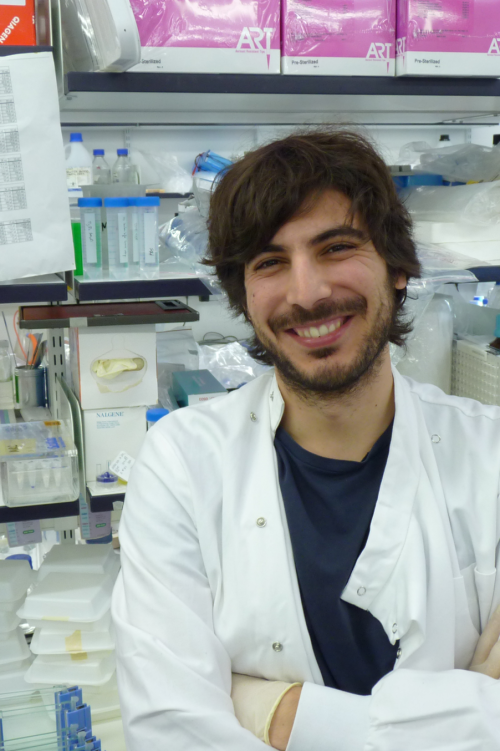Postdoctoral Researcher
with

Dates: September 2010-September 2012
Current position: Postdoctoral Researcher in Professor Roland Wolf's laboratory, Jacqui Wood Cancer Centre, University of Dundee
Papers generated while in the lab:
Papkovskaia, T. D., Chau, K., Inesta-Vaquera, F., Papkovsky, D. B., Healy, D. G., Nishio, K., Staddon, J., Duchen, M. R., Hardy, J., Shapira, A. H. V., Cooper, J. M. (2012). G2019S leucine-rich repeat kinase 2 causes uncoupling protein-mediated mitochondrial depolarization. Hum Mol Genet 21 (19), 4201-4213
Dzamko, N., Inesta-Vaquera, F., Zhang, J., Xie, C., Cai, H., Arthur, S., Tan, L., Choi, H., Gray, N., Cohen, P., Pedrioli, P., Clark, K. and Alessi, D. R. (2012). The IkappaB Kinase Family Phosphorylates the Parkinson's Disease Kinase LRRK2 at Ser935 and Ser910 during Toll-Like Receptor Signaling. PloS one 7, pp. e39132
Zhang, T., Inesta-Vaquera, F., Niepel, M., Zhang, J., Ficarro, S. B., Machleidt, T., Xie, T., Marto, J. A., Kim, N., Sim, T., Laughlin, J. D., Park, H., Lograsso, P. V., Patricelli, M., Nomanbhoy, T. K., Sorger, P. K., Alessi, D. R. and Gray, N. S. (2012). Discovery of Potent and Selective Covalent Inhibitors of JNK. Chem Biol 19, pp. 140-154
Inesta-Vaquera, F. A., Campbell, D. G., Arthur, J. S. and Cuenda, A. (2010). ERK5 pathway regulates the phosphorylation of tumour suppressor hDlg during mitosis. Biochem Biophys Res Commun 399, pp. 84-90
Inesta-Vaquera, F. A., Campbell, D. G., Tournier, C., Gomez, N., Lizcano, J. M. and Cuenda, A. (2010). Alternative ERK5 regulation by phosphorylation during the cell cycle. Cell Signal 22, pp. 1829-1837
Sabio, G., Cerezo-Guisado, M. I., Del Reino, P., Inesta-Vaquera, F. A., Rousseau, S., Arthur, J. S., Campbell, D. G., Centeno, F. and Cuenda, A. (2010). p38gamma regulates interaction of nuclear PSF and RNA with the tumour-suppressor hDlg in response to osmotic shock. J Cell Sci 123, pp. 2596-2604
Inesta-Vaquera, F. A., Centeno, F., del Reino, P., Sabio, G., Peggie, M. and Cuenda, A. (2009). Proteolysis of the tumour suppressor hDlg in response to osmotic stress is mediated by caspases and independent of phosphorylation. FEBS J 276, pp. 387-400


